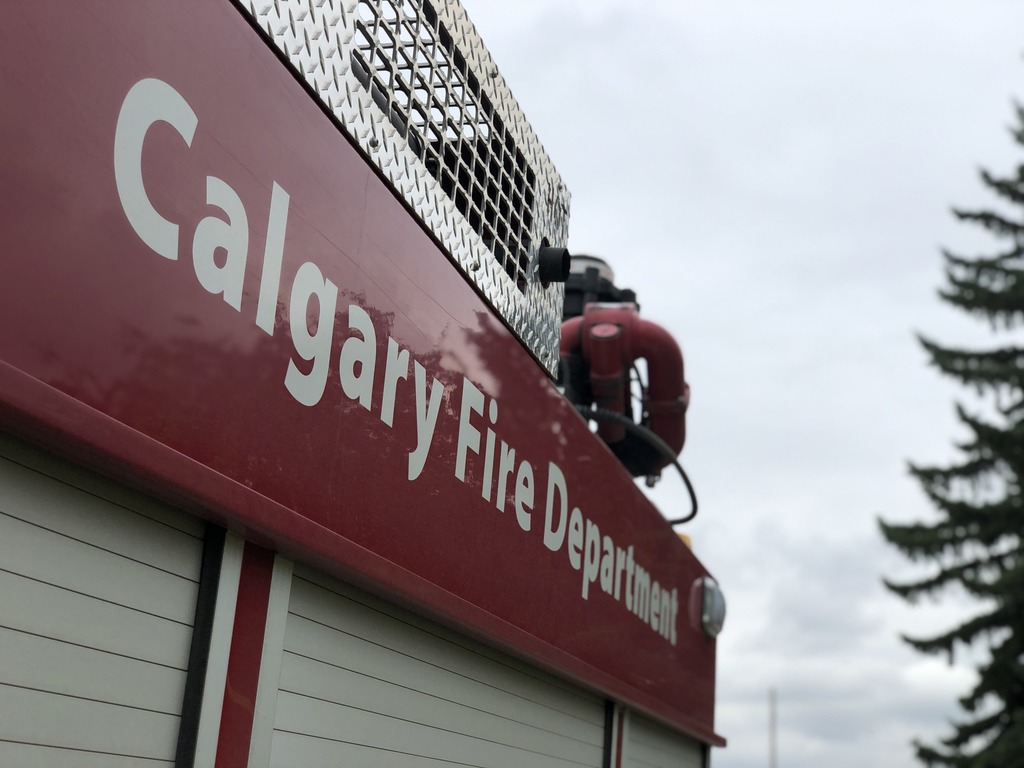Transit service reduced as city adapts to COVID-19 pandemic
Posted Apr 1, 2020 4:56 pm.
Last Updated Apr 2, 2020 7:27 am.
CALGARY (660 NEWS) — The changing COVID-19 situation is forcing the City of Calgary to make more adjustments.
One service being heavily impacted by the pandemic is Calgary Transit, with ridership reduced by around 80 per cent, costing them millions of dollars a month.
With less people on the buses and trains, the service levels will be reduced starting April 6.
“People should still be able to get where they need to go, they should still be able to reach all the areas of the city that are important to them, but they may just have to wait a little longer for some service,” said Transit Manager Russel Davies.
Also, low-income and seniors transit passes purchased in March will remain valid until the end of May, after the city earlier gave an extension to the end of April.
READ MORE: Child care now available for essential workers
But due to the significantly decreased revenue, everyone else is encouraged to continue buying passes and purchasing fares like normal.
You will notice a change when boarding, though, as some seats will be blocked off to assist with physical distancing efforts.
“So around about fifty per cent of the seated load of all vehicles,” Davies added. “So on all the buses, you should see little decals on there that advise against sitting on certain seats.”
2 metres of space helps keep us all safe. Starting today, we are limiting seating and standing areas on our buses, trains and shuttles to implement a 2m distance between #CTRiders. Look out for signage on buses & shuttles telling you which seats to avoid. #COVIDAB #covidyyc pic.twitter.com/7hK6BB8TuJ
— Calgary Transit (@calgarytransit) April 1, 2020
Davies also responded to a question about parking, and said that if you had purchased a park and ride space but are no longer using it then you don’t have to pay for it, although it will remain yours. But if you do continue using the space, you will have to continue paying for it.
The city announced that it is extending the state of local emergency, after it was first put in place on March 15, and the city is rescinding the self-isolation order for returning travellers so it can be replaced with the federal order — which also includes stricter penalties for violators.
Mayor Naheed Nenshi was asked about supports for homeless Calgarians following the province’s announcement the Telus Convention Centre would be used to house people temporarily in order to reduce the amount of people in shelters and increase capability to take them off the streets.
The Calgary Convention Centre will be opening as additional shelter space in downtown Calgary. This evening I was able to tour the centre as it's being set up, see further details on my FaceBook page at https://t.co/kDpApdqAOh pic.twitter.com/1CkksSxyhZ
— Rajan Sawhney (@RajanJSaw) March 31, 2020
The city originally put forward the idea of using vacant hotel rooms — with numerous hoteliers stepping up to offer space — but the province rejected that plan.
“As far as these overflow congregational shelters go, this is going to be best in class. They’ve done every possible thing they can do, they’ve answered every possible question they could answer,” Nenshi said. “I think that there are probably ways that would be more effective in slowing the transmission of the virus, I think that there are other models. And we need to keep those models in our pocket should this grow further.”
“We had to move forward, and so this will, I hope, keep people safer and it’s something we will continue to monitor very, very closely.”
The mayor worries that if there is an outbreak in the homeless community, it could cause the amount of coronavirus cases to skyrocket in the city, but at least this option is better than nothing.
Nenshi added one organization has moved some guests into a hotel, and that will not be reversed.
READ MORE: Two more Albertans die from COVID-19, cases rise by 117
The mayor gave a brief outline of the full financial impact of the situation, estimating the city is losing $10 million to $15 million per week due to both falling revenue and increased costs.
On Monday, more detail will be given in council around supports for struggling businesses, with the mayor indicating that there may be a deferral on property taxes.
Media reports also suggested on Wednesday that firefighters would be moved to 24-hour shifts to reduce the amount of traffic in fire halls, although Nenshi said that was only one option on the table and he was not aware of any firm decisions made on that. Nenshi added that proper protections are in place for paramedics in supplying personal protective equipment (PPE) so they are not exposed to the virus during calls.
Calgary Emergency Management Agency Chief Tom Sampson responded to questions on enforcement of physical distancing orders and other crime rates during the pandemic.
He said there have not been any tickets issued by bylaw or police around distancing, despite some rumours floating around.
Also, crime rates have been mostly steady — except for an increase in domestic calls — and there has not been a rise in property crimes such as break and enters on closed businesses, which Sampson said indicates that Calgarians are doing the right thing.










